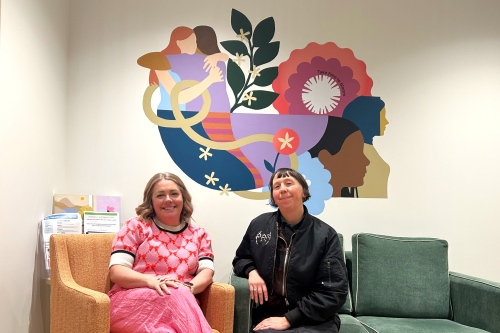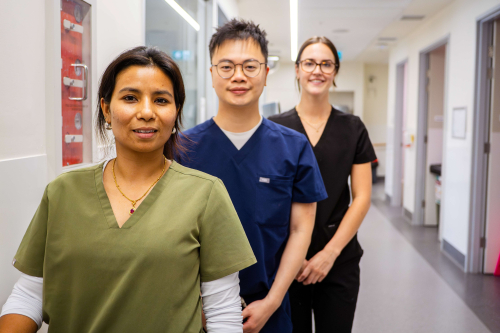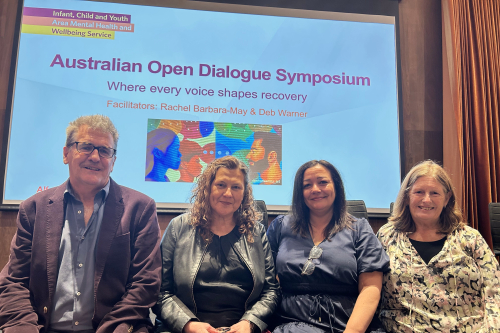Intelligent home monitoring to prevent COVID-19 deaths

People self-isolating with COVID-19 will be able to have their health watched over from afar, thanks to a hospital-monitored software system that gets smarter with each patient cared for.
CovidCare, developed by Alfred Health and Deakin University, uses an intelligent decision-support system to remotely manage and triage patients with confirmed COVID-19, while they self-isolate at home.
Participants will be provided with an oximeter and a thermometer to track their heart rate, blood oxygen level and body temperature. These vital signs are then logged daily for review by specialist nurses and COVID-19 experts, and are also analysed by the system’s embedded algorithms.
Alfred emergency and trauma physician, and CovidCare study lead Associate Professor Joseph Mathew, said self-isolating at home is the best option for many people with the potentially deadly virus, however even those with mild symptoms can deteriorate without warning.
“A system that is intelligent, and can predict and flag which patients may need greater medical assistance before their health declines, is a powerful tool to prevent an intensive care stay, or even death,” Associate Professor Mathew said.
“One of the dangers with COVID-19 is that people can’t always tell their health is worsening because the change can occur slowly, and the body doesn’t notice it.
“The gradual reduction of oxygen levels in the blood, known as silent hypoxia, can creep up and by the time the effects are felt it can be a very serious situation.”
CovidCare’s intelligent decision support system, developed by the Applied Artificial Intelligence Institute (A²I²) at Deakin University, builds on Deakin’s successful partnership with The Alfred and its computer-aided decision-support system for trauma care.
CovidCare technology lead, Professor Rajesh Vasa, Head of Translational Research at Deakin University’s Applied Artificial Intelligence Institute (A²I²), leads Deakin’s involvement in the project and said the technology was designed to be easy to use at home for adults of all ages and backgrounds.
“Beyond coronavirus, the system has enormous potential for improving care of people with many different types of chronic disease,” Professor Vasa said.
“This project shows that you don’t need a $2,000 machine at home to provide good care. The innovation is in how we designed the system to complement human experts to achieve low-cost remote care.”
The Alfred’s Associate Professor Mathew said there is already strong overseas interest in the system – including from countries struggling to contain the virus – but the pilot study will first document its efficacy and safety.
“By keeping people at home, and keeping them monitored, we can watch for clinical deterioration, but also minimise unnecessary hospital visits that put them, their healthcare workers and others at risk.
“Our system is highly adaptable, and could be tailored to support other patient populations – including monitoring for people living with cystic fibrosis, and those with haematological cancers or other conditions where home-based monitoring will help to identify deterioration early.”
Support and partners
CovidCare is being run as a pilot study, with the support of many partners, including funding from private health insurer, nib.
“We all have a role to play in helping fight COVID-19 as well as supporting our community, and as a health insurer this is even more paramount. This pilot does just that, helping patients to recover at home while also reducing pressure on hospitals,” nib Managing Director, Mark Fitzgibbon said.
Other partners and supporters of the project include: Cyber CX (cyber security); Planit Testing (IT quality assurance) and Pondr (digital design).
CyberCX CEO John Paitaridis said: “Crises often bring out the best in us; building partnerships, driving collaboration and fostering innovation. CyberCX was proud to partner with Alfred Health and Deakin University to secure CovidCare, a tool we believe will protect life in Australia and internationally.”


